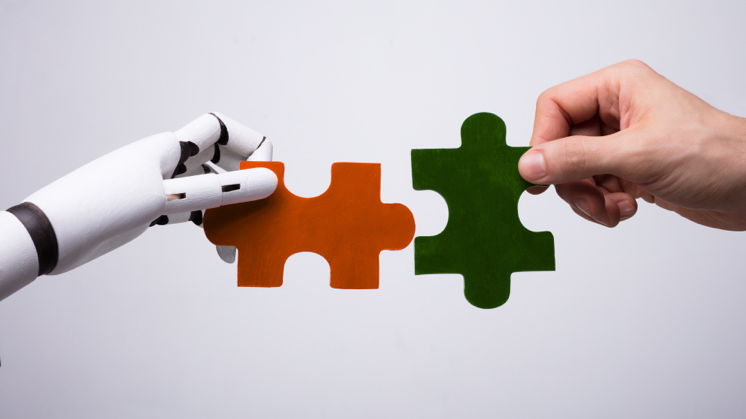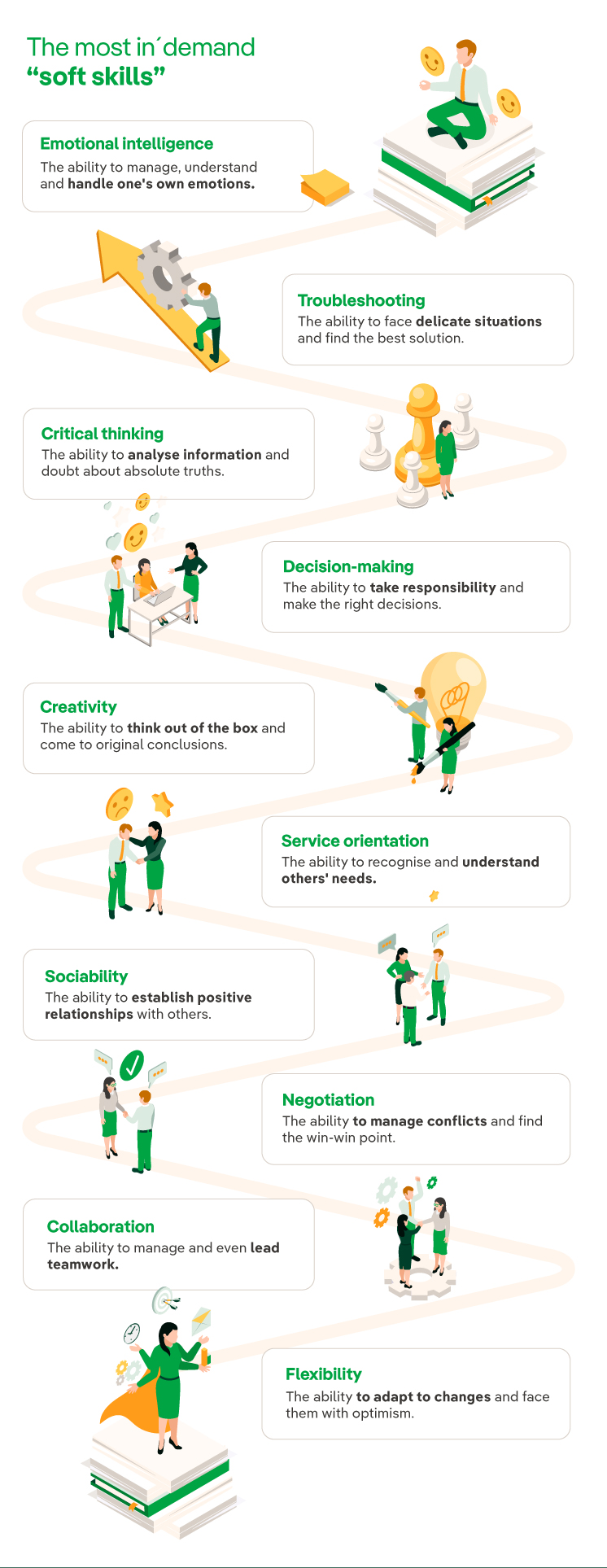Robotisation and humand skills
The value of emotions versus robotisation
In the coming years, robots will do many of the jobs that humans now do. But before we sound the alarm bells, let's listen to the experts. They say that in this man-machine race, humans have a competitive advantage: emotional intelligence.

The impact of robotisation on the workplace
Robots are already here, and while no one knows for sure what impact robotisation will have on the workplace, there are some clues. For example, the World Economic Forum's Future of Jobs 2023 report states that by 2027, 42% of business tasks will be performed by robots or cobots, an increase of 8% over the 2023 figures. Many activities currently performed by humans can potentially be automated. Which ones? The most physical, mechanical and repetitive ones. By sector, the most affected will be administrative, security, manufacturing and commerce. But this is only one side of the coin.
On the other hand, there is one certainty. And that is that, in contrast to those lost, many jobs will emerge. The same report points out the most prominent profiles: data analyst, Artificial Intelligence specialist, software developer, among others. In fact, according to the study, more than 75% of companies will seek to adopt technologies such as big data, cloud computing or AI in their businesses in the coming years. Therefore, the tasks that will remain in the hands of humans will be those that require skills that, for the moment, are not within the reach of machines. We are talking about areas like education, health and art.
Automation, robotics and artificial intelligence
What do we mean when we talk about automation, robotics and Artificial Intelligence? Automation consists of the use of software that establishes and follows pre-programmed steps to automate a task. Robotics is a branch of mechatronic engineering that basically designs and builds robots. And Artificial Intelligence is the simulation of human intelligence processes by machines.
The combination of these three disciplines will shape the future of the world of work, but it is Artificial Intelligence which, perhaps due to the influence of literary and cinematographic works of science fiction, inevitably makes us think of the gradual substitution of human labour by humanoids. The World Economic Forum believes that the significant advances of Artificial Intelligence in various fields and sectors will lead to high staff turnover in the coming years: 50% of the organisations surveyed in the above-mentioned report believe that AI will have a positive impact on job creation, while 25% think that the technology will create job losses.

Interpersonal skills as a competitive advantage
In this context, interpersonal skills are presented as a clear competitive advantage over robotisation in the workplace. These skills, also known as soft skills, are those that involve emotional intelligence, that is the ability to effectively manage our emotions, to recognise those of others and to establish positive relationships with others. We are talking about creativity, collaboration, flexibility, negotiation and other skills that, when applied to the world of work, translate into people capable of finding the best strategies to achieve success.
The recognition of these skills is now reaching its peak, but they have been appreciated since before robotisation was evident, as is illustrated by various studies. This was shown, for example, by a study conducted by the Stanford Research Institute and the Carnegie Mellon Foundation in 2008. The 500 CEOs consulted assured that 75 % of success at work in the long term will be due to soft skills and only 25 % to technical skills. In 2011, a survey conducted by Career Builder among heads of HR departments confirmed the managers' perception. The data, which we will break down below, reflected a persisting trend in the selection process: appraising the social performance of their future workers as well as their technical knowledge.
- A full 71 % of respondents said they valued an employee's emotional intelligence over other attributes, including IQ.
- This 75 % said they were more likely to offer promotion to an employee with a high level of emotional intelligence.
- And 59 % said they would rule out a candidate with a high IQ but little emotional intelligence.
These data are not the result of chance. It has been shown that employees with high levels of emotional intelligence cooperate more with their colleagues, manage day-to-day stress better, resolve work conflicts more easily and learn from their mistakes. Emotional intelligence thus becomes the last great human bastion against robotisation.





